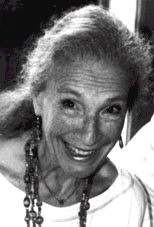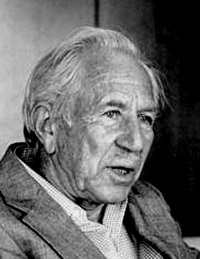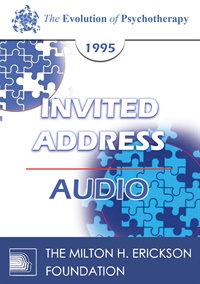EP95 Invited Address 11b - Beyond One to One - Miriam Polster, PhD
- Average Rating:
- Not yet rated
- Topic Areas:
- Invited Addresses | Gestalt | Group Therapy | Psychotherapy | Group Psychotherapy
- Categories:
- Evolution of Psychotherapy | Evolution of Psychotherapy 1995
- Faculty:
- Miriam Polster | Alexander Lowen, MD
- Duration:
- 1 Hour 22 Minutes
- Format:
- Audio Only
- Original Program Date:
- Dec 17, 1995
- License:
- Never Expires.
Description
Description:
The proliferation of therapeutic groups, either self-help or professionally staffed, has dramatically expanded the applicability of psychotherapy. This development reflects society's increased willingness to deal communally with personal problems that were previously restricted to private psychotherapeutic sessions. Gestalt group therapy, with its original emphasis on the freshness and pungency of individual experience has also extended its perspective to group work. Dr. Miriam Polster describes how the gestalt approach enlivens group focus and interaction through its principles of awareness and experiment-and especially through its attention to the quality of the contact between group members.
Educational Objectives:
- To name one of the major principles of gestalt theory and give an example of its use in a group setting.
- To name two of the major functions of a gestalt group leader.
- To give one example of how a gestalt experiment can be used in a group setting.
*Sessions may be edited for content and to preserve confidentiality*
Credits
Faculty

Miriam Polster Related Seminars and Products
Miriam Polster, Ph.D, is co-director of the Gestalt Training Center in San Diego, and Assistant Clinical Professor at the Department of Psychiatry, School of Medicine, University of California, San Diego. Along with her husband, Erving Polster, she is co-author of a book on Gestalt therapy. She received her Ph.D. in Clinical Psychology from Case Western Reserve University in 1967.

Alexander Lowen, MD Related Seminars and Products
Alexander Lowen, MD, was an American physician and psychotherapist. A student of Wilhelm Reich in the 1940s and early 1950s in New York, he developed bioenergetic analysis, a form of mind-body psychotherapy, with his then-colleague, John Pierrakos. Lowen was the founder and former executive director of the International Institute for Bioenergetic Analysis in New York City.


